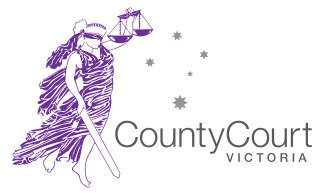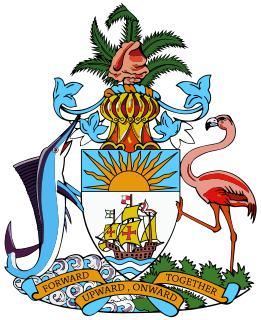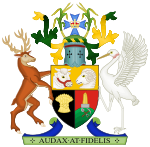
A summary offence is a violation in some common law jurisdictions that can be proceeded against summarily, without the right to a jury trial and/or indictment.
The courts of England and Wales, supported administratively by Her Majesty's Courts and Tribunals Service, are the civil and criminal courts responsible for the administration of justice in England and Wales.

A justice of the peace (JP) is a judicial officer of a lower or puisne court, elected or appointed by means of a commission to keep the peace. In past centuries the term commissioner of the peace was often used with the same meaning. Depending on the jurisdiction, such justices dispense summary justice or merely deal with local administrative applications in common law jurisdictions. Justices of the peace are appointed or elected from the citizens of the jurisdiction in which they serve, and are usually not required to have any formal legal education in order to qualify for the office. Some jurisdictions have varying forms of training for JPs.

The term magistrate is used in a variety of systems of governments and laws to refer to a civilian officer who administers the law. In ancient Rome, a magistratus was one of the highest ranking government officers, and possessed both judicial and executive powers. In other parts of the world, such as China, a magistrate was responsible for administration over a particular geographic area. Today, in some jurisdictions, a magistrate is a judicial officer who hears cases in a lower court, and typically deals with more minor or preliminary matters. In other jurisdictions, magistrates may be volunteers without formal legal training who perform a judicial role with regard to minor matters.
A hybrid offence, dual offence, Crown option offence, dual procedure offence, offence triable either way, or wobbler is one of the special class offences in the common law jurisdictions where the case may be prosecuted either summarily or as indictment. In the United States, an alternative misdemeanor/felony offense lists both county jail and state prison as possible punishment, for example, theft. Similarly, a wobblette is a crime that can be charged either as a misdemeanor or an infraction, for example, violating COVID-19 safety precautions.

The Judiciary of the Hong Kong Special Administrative Region is the judicial branch of the Hong Kong Special Administrative Region. Under the Basic Law of Hong Kong, it exercises the judicial power of the Region and is independent of the executive and legislative branches of the Government. The courts in Hong Kong hear and adjudicate all prosecutions and civil disputes, including all public and private law matters.

The judiciary of Australia comprises judges who sit in federal courts and courts of the States and Territories of Australia. The High Court of Australia sits at the apex of the Australian court hierarchy as the ultimate court of appeal on matters of both federal and State law.

The Supreme Court of Queensland is the highest court in the Australian State of Queensland. It was formerly the Brisbane Supreme Court, in the colony of Queensland.

The Local Court of New South Wales is the lowest court in the judicial hierarchy of the Australian state of New South Wales. Formerly known as the Court of Petty Sessions and the Magistrates Court, there are more than 160 branches across New South Wales where the Local Court has jurisdiction to deal with the majority of minor civil and criminal matters.

In England and Wales, a magistrates' court is a lower court which hears cases of summary offences and preliminary hearings for more serious ones. Some civil law matters are also decided here, notably family proceedings. In 2015, there were roughly 330 magistrates' courts in England and Wales, though the government was considering closing up to 57 of these. The jurisdiction of magistrates' courts and rules governing them are set out in the Magistrates' Courts Act 1980.

The County Court of Victoria is the intermediate court in the Australian state of Victoria. It is equivalent to district courts in the other states.

The judiciary of Pakistan is a hierarchical system with two classes of courts: the superior judiciary and the subordinate judiciary. The superior judiciary is composed of the Supreme Court of Pakistan, the Federal Shariat Court and five High Courts, with the Supreme Court at the apex. There is a High Court for each of the four provinces as well as a High Court for the Islamabad Capital Territory. The Constitution of Pakistan entrusts the superior judiciary with the obligation to preserve, protect and defend the constitution. Neither the Supreme Court nor a High Court may exercise jurisdiction in relation to Tribal Areas, except otherwise provided for. The disputed regions of Azad Kashmir and Gilgit–Baltistan have separate court systems.

The Magistrates Court of Queensland is the lowest court in the court hierarchy of Queensland, Australia. All criminal proceedings in Queensland begin in the Magistrates Court, with minor offences being dealt with summarily, and more serious ones being referred to a higher court on the strength of evidence. Most criminal cases are first heard in the Magistrates Court, as are most civil cases. The Magistrates Court hears approximately 95% of all court cases in Queensland.

The Children's Court of New South Wales is a court within the Australian court hierarchy established pursuant to the Children's Court Act 1987 (NSW) which deals with criminal offences committed by children aged over 10 years and under 18 years, as well as with proceedings relating to the care and protection of children. The court commenced on 18 January 1988.

The District Court of Queensland is the second tier in the court hierarchy of Queensland, Australia. The Court deals with serious criminal offences such as rape, armed robbery and fraud. Juries are used to decide if defendants are guilty or not guilty.
The Youth Justice Court of the Northern Territory is an Australian court which hears and determines cases concerning crimes committed by children under the age of 18 years in the Northern Territory.
The Children's Court of Victoria is a statutory court created in Victoria, Australia. The court deals with criminal offences committed by children aged between 10 and 17 and with proceedings concerning children under the age of 17 relating to the care and protection of children.

The basis of the Bahamian Law and legal system lies within the English Common Law tradition. Justices of the Supreme Court, Registrars and Magistrates are all appointed by The Governor-General acting on the advice of the Judicial and Legal Service Commission, which is composed of five individuals who are headed by the Chief Justice as their chairman. The Chief Justice and the Justices of the Court of Appeal, including the President, are appointed by the Governor-General on the recommendation of the Prime Minister after consultation with the Leader of the Opposition. Once appointed, the salaries and other terms of appointment of the Chief Justice, Justices of Appeal and Justices of the Supreme Court cannot be altered to their disadvantage. Justices of the Supreme Court can serve until the age of 65 years and, where agreed among the judge, the Prime Minister and the Leader of the Opposition, may serve until the age of 67. Justices of Appeal can serve until the age of 68 years and, where agreed among the judge, the Prime Minister and the Leader of the Opposition, may serve until the age of 70 years. The law of The Bahamas makes provisions for the appointment of 12 Justices to the Bench of the Supreme Court, inclusive of the Chief Justice, and for five Justices of the Court of Appeal, inclusive of the President. The Chief Justice, as Head of the Judiciary, is an ex officio member of the Court of Appeal, but only sits at the invitation of the President.
Timothy Francis Carmody QC is an Australian judge who was the Chief Justice of Queensland between 8 July 2014 and 1 July 2015. His previous roles include work as a police officer, barrister, Queensland Crime Commissioner, Family Court of Australia judge, and Chief Magistrate of the Magistrates Court of Queensland. He also presided over the 2013 Child Protection Commission of Inquiry.

Juvenile Justice Act, 2015 has been passed by Parliament of India amidst intense controversy, debate and protest on many of its provisions by Child Rights fraternity. It replaced the Indian juvenile delinquency law, Juvenile Justice Act, 2000, and allows for juveniles in conflict with Law in the age group of 16–18, involved in Heinous Offences, to be tried as adults. The Act also sought to create a universally accessible adoption law for India, overtaking the Hindu Adoptions and Maintenance Act (1956) and the Guardians and Wards Act (1890), though not replacing them. The Act came into force from 15 January 2016.












